Privacy Coin Availability Checker
Check if privacy coins (Monero, Zcash, Dash) are available on regulated exchanges in your country. Based on current regulatory status as of 2025.
Select your country to see availability status
Australians can still own privacy coins like Monero, Zcash, and Dash - but they can’t trade them on any licensed exchange in the country. Since early 2025, every major Australian crypto platform has removed these assets from their listings. It’s not a law that says you can’t hold them. It’s a rule that says exchanges can’t offer them without breaking anti-money laundering laws.
Why Privacy Coins Got Banned
Privacy coins aren’t illegal in Australia. But they’re built to hide everything: who sent the money, who received it, and how much was transferred. That’s great if you want financial privacy. It’s a nightmare for regulators trying to stop drug dealers, ransomware gangs, and tax evaders. Exchanges like Independent Digital Assets Exchange (IDAX) and others reported that 78% of their institutional clients pushed for the removal of privacy coins. Why? Because compliance is expensive. If an exchange can’t trace a transaction, it risks fines, license revocation, or even criminal charges from AUSTRAC - Australia’s financial intelligence unit. Monero uses ring signatures and stealth addresses. Zcash uses zero-knowledge proofs. These aren’t just buzzwords - they’re cryptographic tools that make transactions untraceable. Even the U.S. Internal Revenue Service has offered $625,000 in bounties to anyone who can break Monero’s privacy. That’s how tough it is.Who’s Enforcing the Ban?
Two agencies are behind the scenes pulling the strings: ASIC and AUSTRAC. ASIC - the Australian Securities and Investments Commission - watches over financial products. They’ve sued companies like Qoin and Finder Wallet for offering unlicensed crypto services. They don’t care if you’re buying Bitcoin or Monero - if you’re running a service that handles crypto, you need to be licensed. And privacy coins make licensing impossible. AUSTRAC is the real enforcer. Under the Anti-Money Laundering and Counter-Terrorism Financing Act, digital currency exchanges must know who their customers are and track every transaction. Privacy coins break that rule. Since 2023, AUSTRAC has canceled or suspended registrations of exchanges that failed to meet these standards. In 2025, they ramped up enforcement. No more gray area.What’s Happening on Other Platforms?
Australia isn’t alone. This is a global purge. - Binance removed Monero, Zcash, and Dash from its U.S. and European platforms in February 2025. That cut $600 million in monthly trading volume overnight. - Kraken pulled privacy coins from its Canadian platform in March 2025 after FINTRAC tightened rules. - Poloniex delisted Monero globally in April 2025 following pressure from the U.S. Treasury. - Japan banned privacy coins entirely in 2018. South Korea’s top five exchanges followed in early 2025. - The European Union is set to ban them completely by July 2027. Even exchanges that didn’t have to comply - like those in Switzerland - started dropping privacy coins voluntarily. Why? Because global compliance systems are linked. If you list Monero, you risk losing access to banking partners or payment processors in the U.S. or EU.
Can You Still Buy Privacy Coins in Australia?
Technically, yes - but it’s harder and riskier. You can’t buy Monero on CoinSpot, Swyftx, or Independent Reserve anymore. Your only legal options are:- Peer-to-peer (P2P) platforms like LocalMonero - where you trade directly with another person
- International exchanges that don’t verify Australian users (like some offshore platforms)
- Buying Bitcoin or Ethereum on a local exchange, then swapping it for privacy coins on an overseas platform
Why This Matters for Regular Users
Most Australians don’t care about privacy coins. They just want to buy Bitcoin, Ethereum, or Solana. But the ban affects everyone. First, it reduces competition. Fewer assets mean fewer reasons for exchanges to innovate or lower fees. Second, it pushes users toward unregulated platforms. That’s not safer - it’s riskier. Third, it sets a precedent. If privacy coins can be banned, what’s next? Will tokenized real estate or DeFi protocols face similar restrictions? Institutional investors love this change. Banks and fund managers see the removal of privacy coins as a sign that Australia’s crypto market is becoming “clean.” That’s why institutional adoption has grown since early 2025. But everyday users? They feel locked out.What’s Coming in 2026?
On March 31, 2026, AUSTRAC’s rules will expand. Right now, only licensed digital currency exchanges are regulated. After that date, every digital asset service provider - including wallet apps, staking platforms, and even some DeFi tools - will need to comply with AML/CTF rules. That means even if you use a non-exchange platform to swap privacy coins, you might be forced to verify your identity. Some developers are already working on “compliant privacy coins” - versions that hide transaction amounts but still let regulators see who sent what. But that defeats the whole point. If you can trace it, it’s not private.
How Does Australia Compare?
Australia’s approach isn’t the strictest - but it’s effective. Japan and Dubai outright banned privacy coins. The EU is coming with a full ban in 2027. Switzerland still allows them under strict KYC rules. Australia sits in the middle: no law says “you can’t own,” but the system makes it impossible to trade them legally. It’s a quiet ban. No press releases. No emergency legislation. Just compliance pressure that forced exchanges to make the call themselves. That’s smarter politically - but it leaves users confused. Many think they’re breaking the law by owning Monero. They’re not. But they’re trapped.What Should You Do?
If you own privacy coins:- Don’t panic. Owning them is still legal.
- Don’t try to hide them. If you’re audited, you’ll need to prove you bought them legally.
- If you want to trade, use P2P - but treat it like a cash deal. Meet in public, use escrow, verify identities.
- Keep records. Transaction hashes, wallet addresses, timestamps - all of it matters if you’re ever questioned.
- Consider Bitcoin with CoinJoin or Wasabi Wallet - they offer partial privacy without breaking rules.
- Use a hardware wallet to store assets offline.
- Stay informed. Regulatory changes are coming fast.
Is There a Future for Privacy Coins in Australia?
Right now? Not on exchanges. Not under current rules. The technology isn’t broken - it’s too good. Regulators can’t trace it. So they block it. The only way privacy coins return to Australian exchanges is if they change. If Monero or Zcash adds a backdoor for regulators - a “compliance key” - then maybe. But that would mean giving up their core promise: true anonymity. For now, privacy coins in Australia exist in a legal gray zone. You can hold them. You can’t trade them. And unless the law changes - or the tech evolves - that’s not likely to shift anytime soon.What’s clear is this: the era of untraceable crypto on regulated platforms is over. Australia didn’t invent the ban. But it’s enforcing it harder than most.
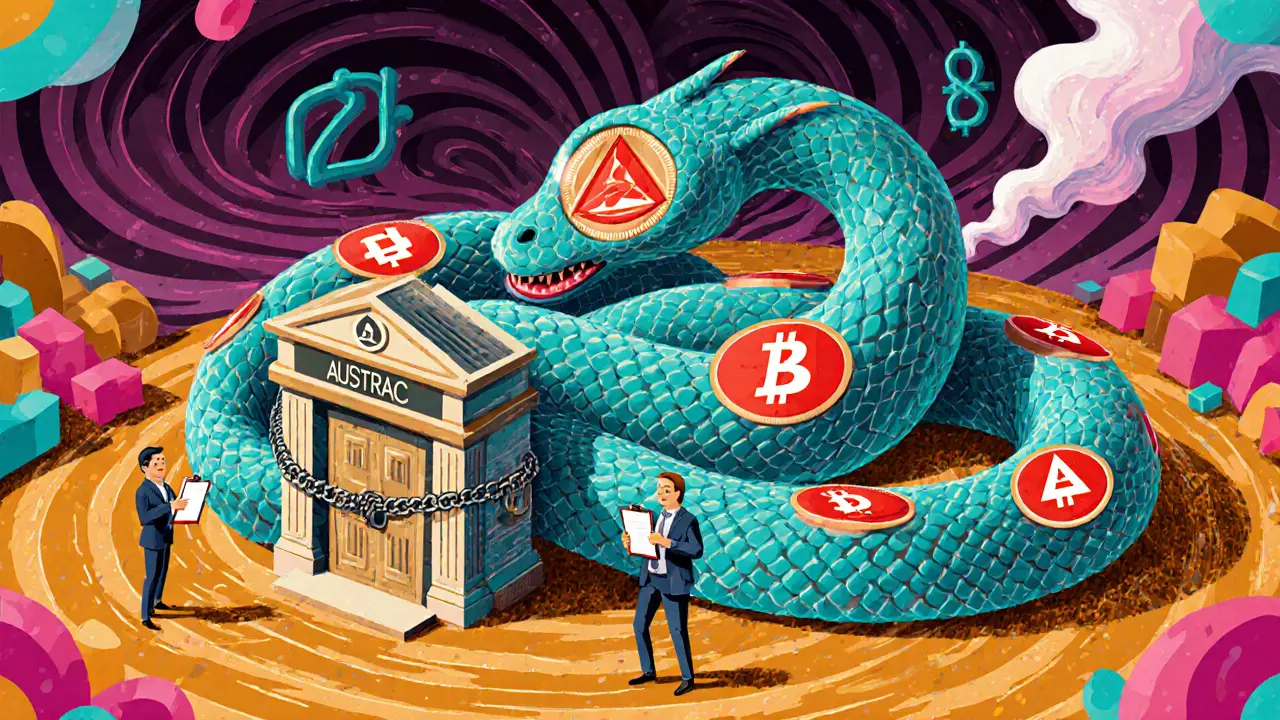
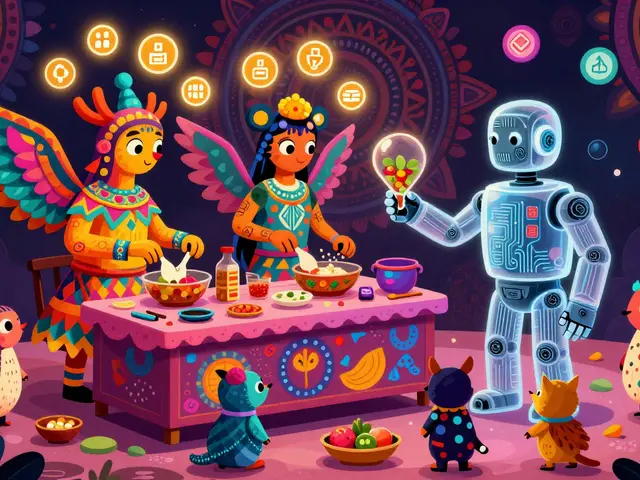
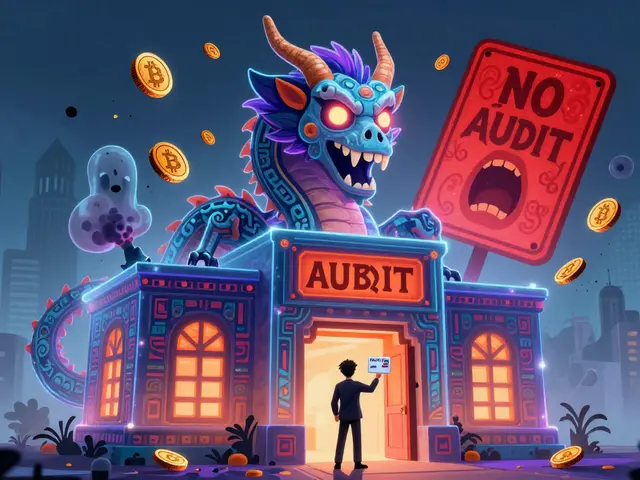

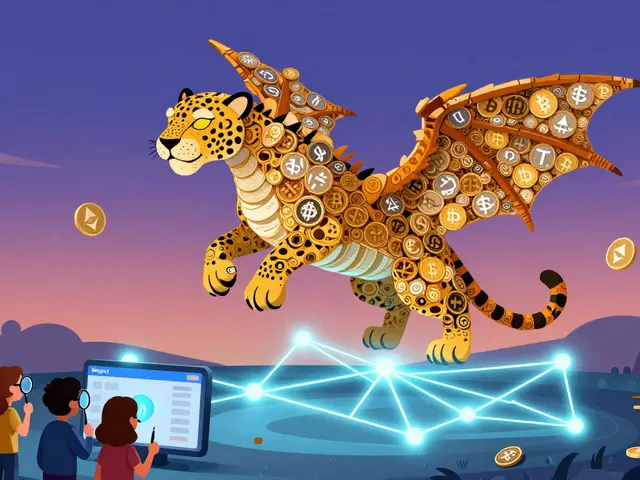
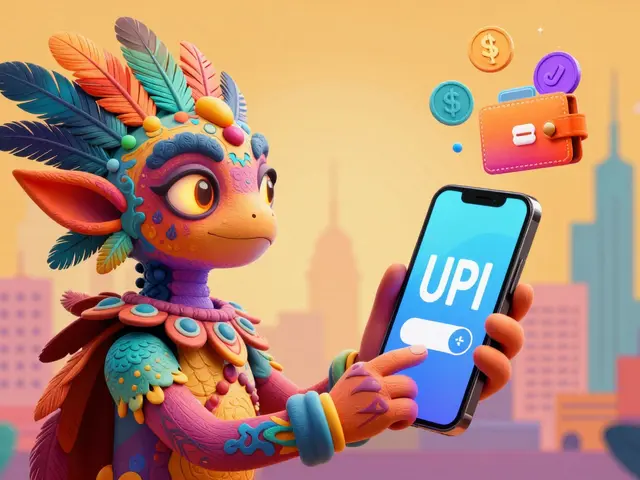
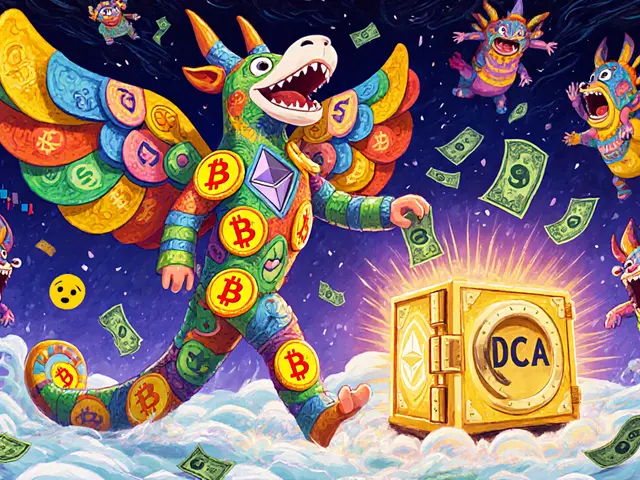
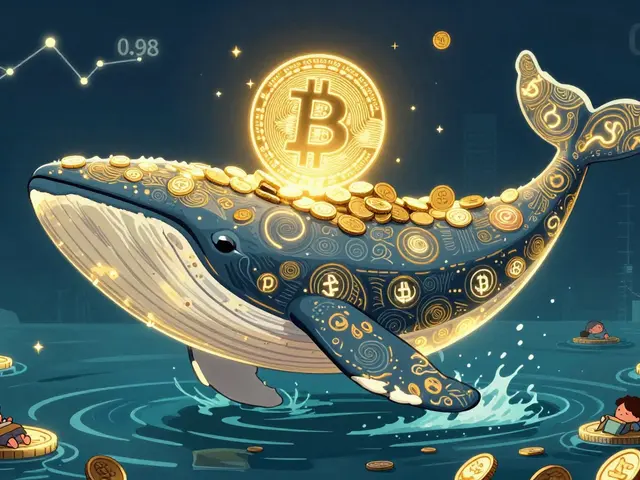

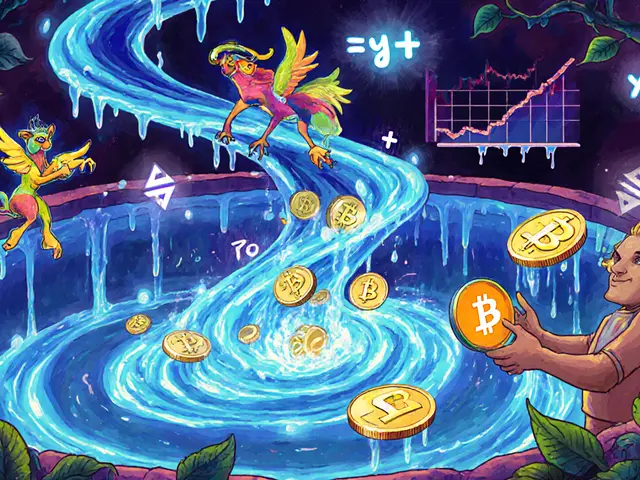

10 Comments
Honestly, I get why exchanges pulled these coins. I’m not here to defend money laundering - that’s terrible. But I also don’t think privacy should be a crime. There are legit reasons people want to keep their finances quiet - survivors of abuse, journalists in hostile countries, even just folks tired of being tracked everywhere. The system’s punishing everyone because a few bad actors exist. That’s not justice, it’s overkill.
And honestly? This feels like the beginning of something bigger. What’s next? Banning encrypted messaging apps because criminals use them too?
I’m not saying we should ignore regulation. But there’s a middle ground. Maybe a ‘privacy mode’ that’s opt-in and auditable only under court order. Not a total ban.
Also, the fact that the U.S. Treasury is offering half a million bucks to crack Monero? That’s wild. If they can’t break it, maybe they should stop pretending it’s a threat and start learning how to work with it.
OH MY GOD. THEY BANNED MONERO?!? LIKE, THE WHOLE THING?!? THIS IS THE END OF CRYPTO AS WE KNOW IT!!
Do you realize what this means?!? We’re living in a dystopian hellscape where your financial DNA is now a public record! Every dollar you spend is being logged, tagged, analyzed, and sold to advertisers who then target your trauma with ads for antidepressants and debt consolidation loans!
And don’t even get me started on how AUSTRAC is basically the NSA’s crypto cousin wearing a suit and carrying a clipboard instead of a drone. They don’t want privacy - they want CONTROL. They want you to be a transparent little financial puppet dancing on a string while they sip lattes in Canberra and laugh at your suffering.
Meanwhile, Zcash devs are probably in a bunker in Iceland right now, whispering to their quantum computers: ‘We warned them. We warned them ALL.’
And now? You can’t even buy privacy coins without becoming a digital fugitive? I’m not even mad - I’m just… disappointed. Like, this isn’t capitalism. This is corporate fascism with a side of KYC.
Also, I just bought a lifetime supply of Monero on a darknet forum using Monero. And I’m not sorry.
Look, I’m all for financial freedom - but let’s be real. Privacy coins = criminal playground. If you’re not doing anything shady, why do you need to hide your transactions? That’s like saying you need a secret vault to store your grocery receipts. It doesn’t add up.
And honestly? I’m tired of crypto bros acting like they’re freedom fighters when they’re just trying to avoid taxes. AUSTRAC and ASIC are doing the right thing. If you’re using Monero to launder drug money or pay ransomware hackers, you deserve to get caught.
Also, the fact that even Binance and Kraken pulled these coins says it all. These aren’t small-time platforms - they’re giants. If they’re walking away, it’s because the compliance risk is too high. That’s not censorship - that’s responsibility.
And if you think this is the start of a slippery slope? Newsflash: the slope was already slippery. The real threat isn’t regulation - it’s people who think they’re above the law because they’re ‘tech-savvy.’
Also, I’m not even mad. I’m just… disappointed in the community for being so naive.
so like… i just bought some xmr on localmonero last week 😅 and honestly? it felt kinda like buying weed from a guy in a hoodie at a gas station. no receipts, no customer service, just a qr code and a prayer.
but hey, at least i know my money isn’t being tracked by some gov bot. also, my wallet is on a usb stick in my sock drawer. 🤫
also, why are all the big exchanges acting like they’re afraid of a coin? it’s just code. it’s not magic. if they can trace btc, why not xmr? 🤔
anyway, if you’re scared of privacy coins, just stick to btc with coinjoin. less drama. still kinda private. still legal. win win.
also, can we talk about how australia is basically the strict mom of crypto now? 🥲
Okay, I’ve been following this since 2023, and honestly? Australia’s approach is the most *practical* one. No outright ban - just making it impossible to trade on regulated platforms. That’s genius, actually. It doesn’t criminalize users, but it removes the infrastructure that enables abuse.
I’ve been using Zcash for my freelance payments from clients in the U.S., and I love it - but I totally get why exchanges had to pull it. Compliance isn’t optional anymore. Banks are cutting off services left and right if you even *hint* at dealing with privacy coins.
Also, the fact that Japan banned them in 2018 and now even Switzerland is quietly dropping them? That’s not coincidence. Global banking is now a single, interconnected system. You can’t have one platform that’s a privacy haven and expect the rest to ignore it.
But I agree with Ryan - there’s a human cost here. People who need privacy for safety are being collateral damage. Maybe we need a ‘compliant privacy’ layer - like a zero-knowledge proof that only reveals info to a court-approved authority. Not a backdoor. A *controlled* key.
Still… I’d rather have this system than the Wild West. At least now, when someone gets scammed, there’s a path to accountability.
Let’s be crystal clear: this isn’t about banning privacy - it’s about banning *untraceable* financial activity. There’s a difference.
Regulators aren’t trying to spy on your grocery purchases. They’re trying to stop people from laundering $50 million in ransomware payments through a coin that leaves zero digital footprints. That’s not overreach - that’s basic public safety.
And yes, you can still own privacy coins. You can still use them. But if you’re using them on a regulated exchange, you’re asking them to break the law. That’s not fair to the platform. They’re not the villains here - they’re the ones holding the bag while regulators come knocking with subpoenas.
Also, the idea that ‘privacy’ justifies hiding criminal activity is morally bankrupt. If you need privacy to hide your illegal behavior, you’re not a freedom fighter - you’re a criminal.
And to those who say ‘what’s next?’ - nothing. This is targeted. It’s not about Bitcoin. It’s not about DeFi. It’s about coins engineered to be untraceable. That’s the line. And Australia drew it wisely.
Also, I’m not saying this to be harsh. I’m saying it because I care about the future of crypto - and it can’t thrive if it’s a haven for criminals.
OMG I JUST REALIZED I STILL HAVE SOME ZEC IN MY WALLET 😱
But like… I bought it in 2021 and totally forgot about it. I’m not doing anything shady, I swear! I just thought it was cool 😅
So… am I in trouble?? Do I need to send it to a friend in Canada?? 😭
Also, I just used Wasabi Wallet for my BTC and it felt so much better than regular BTC. Like, it’s like giving your money a little privacy hoodie 🧥
And I’m so sad that my favorite exchange removed Monero. I used to trade it for fun. Now I just stare at my wallet like it’s a ghost. 👻
Also, can we make a petition to bring back privacy coins? I’ll sign it 100 times. 💪
It's about time. The entire privacy coin narrative was always a smokescreen for tax evasion and illicit activity. The notion that 'privacy' is a fundamental right in financial transactions is a dangerous myth propagated by libertarians who don't understand the consequences of their ideology.
Regulation isn't tyranny. It's the foundation of a functioning economy. The fact that exchanges voluntarily removed these assets speaks to their responsibility - unlike the users who still cling to the fantasy that they're being persecuted for 'freedom.'
There is no moral high ground in hiding financial transactions. If you're not doing anything wrong, you have nothing to hide - and if you are, you deserve to be caught.
This is not a slippery slope. It's a necessary correction. The rest of the world is catching up. Australia is simply ahead of the curve.
Anyone who disagrees is either willfully ignorant or complicit.
Wait - so you can OWN privacy coins but not trade them? That’s not a ban - that’s a trap. You’re basically forcing people to use sketchy P2P platforms where scammers thrive. That’s not regulation - that’s negligence.
And who’s to say the people using P2P aren’t just normal folks trying to avoid surveillance? Maybe they’re whistleblowers. Maybe they’re journalists. Maybe they’re just tired of being tracked by Google and Amazon and now the government too?
And why is no one talking about how this pushes people toward unregulated platforms? You’re not stopping crime - you’re just moving it underground. That’s not safety. That’s stupidity.
Also - why are you letting exchanges make these decisions? That’s not democracy. That’s corporate censorship disguised as compliance.
And don’t even get me started on ‘compliant privacy coins.’ That’s like saying ‘I want a lock on my door… but the cops get the key.’ That’s not privacy. That’s surrender.
Bro, I just used Monero to pay my freelance client in Ukraine - he’s got no bank account, and I didn’t want my bank to flag it as ‘suspicious.’ It worked. No issues.
Now I can’t do that anymore. So now I have to use BTC + CoinJoin + 3 different wallets and a VPN just to send $500? That’s not privacy - that’s a full-time job.
And don’t tell me ‘it’s for criminals.’ I’m not a criminal. I’m just a guy trying to get paid without being tracked by 5 different financial institutions.
Also, AUSTRAC doesn’t care about me. They care about the big players. But guess what? I’m the one who gets punished.
So yeah. I’m mad. And I’m not alone.
Also, I just bought a second-hand laptop with Monero from a guy on Reddit. He didn’t even ask for my ID. Just a wallet address. That’s the future now. 😅